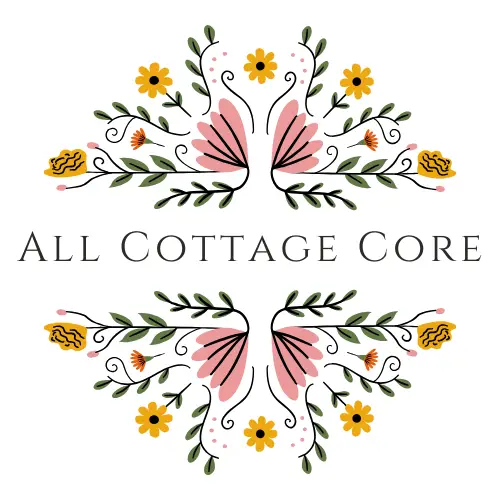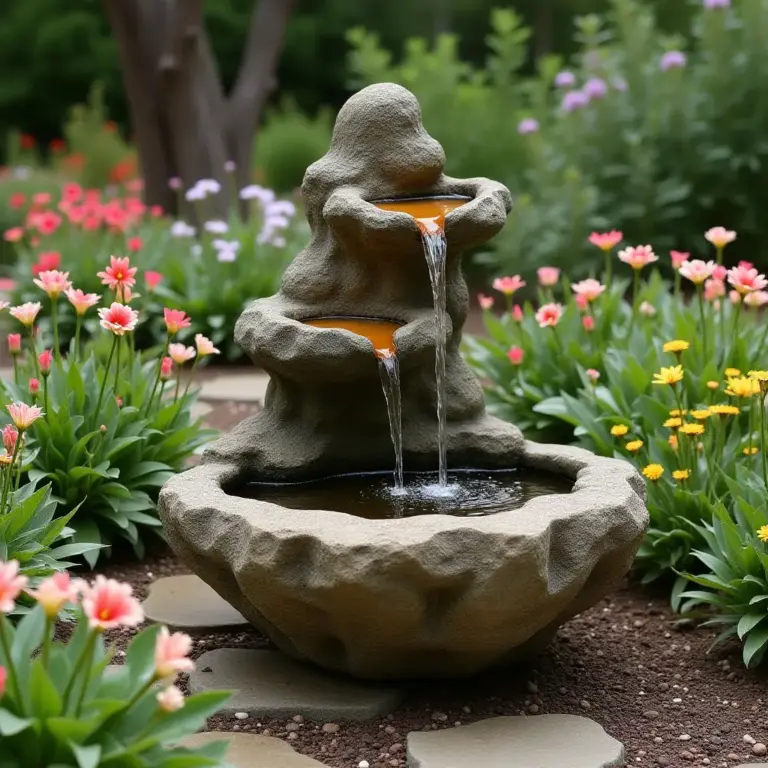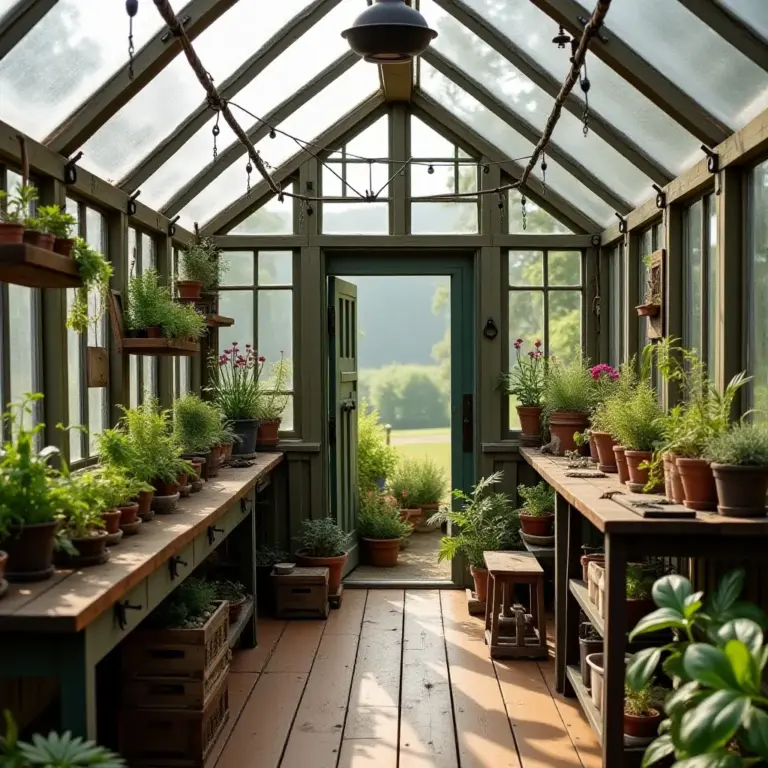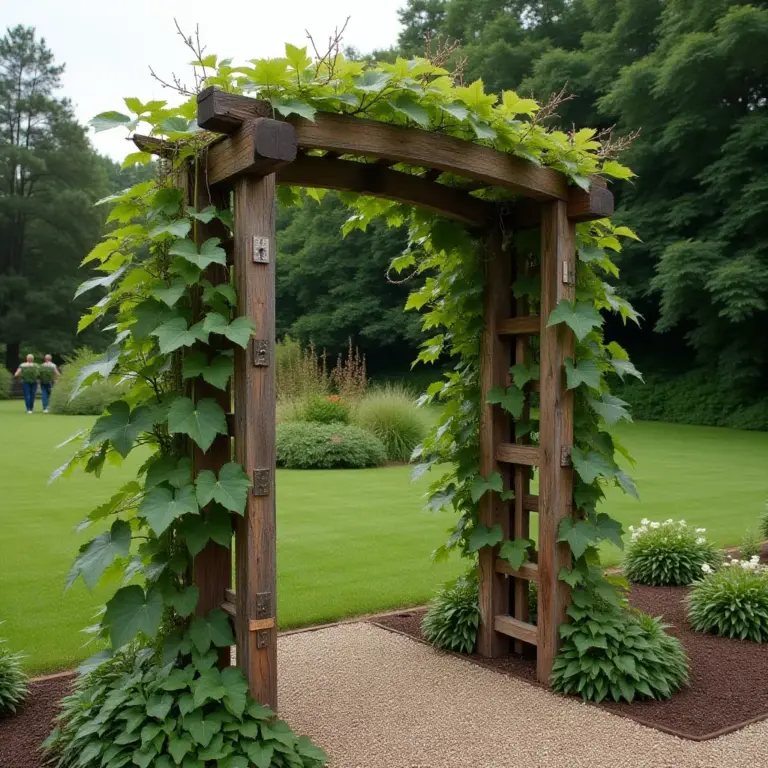Essential Insights
- Composting aligns with cottagecore values, offering a sustainable way to reduce waste and enrich soil.
- Key benefits include waste reduction, improved soil health, biodiversity support, and cost savings.
- Proper location and materials are crucial for effective composting; avoid meat and dairy in compost.
- Regular maintenance, including turning and monitoring moisture, ensures successful decomposition.
- Finished compost enriches garden soil, promoting healthier plant growth and water retention.
Introduction
Welcome to the enchanting world of cottagecore composting, where the magic of nature meets the art of sustainability. Imagine turning your kitchen scraps and garden waste into nutrient-rich soil that breathes life back into your garden. It’s like a little ecosystem right in your backyard!
Composting is a simple yet powerful way to reduce waste and create something beautiful. In the spirit of cottagecore, it’s about embracing the slow, intentional process of nurturing the earth. I remember my first compost pile; it was a humble start, but over time, it became a treasure trove for my garden beds.
By setting up a composting system, you not only help the environment but also enrich your garden with organic matter that plants adore. Whether you’re growing vegetables or flowers, composting is the secret ingredient to a thriving, lush garden.
For more on sustainable practices, explore our article on cottagecore zero waste living.
Benefits of Composting in a Cottagecore Garden
Cottagecore composting offers numerous benefits that align perfectly with the values of simplicity and sustainability. Here are some key advantages:
- Reduces Waste: By composting kitchen scraps and garden waste, you significantly reduce the amount of trash sent to landfills.
- Improves Soil Health: Compost adds essential nutrients back into the soil, making it rich and fertile, which is perfect for growing healthy plants.
- Supports Biodiversity: A compost pile attracts beneficial insects and organisms that help break down organic material, enriching your garden’s ecosystem.
- Saves Money: Using homemade compost reduces the need to buy chemical fertilizers, which are not only costly but can also harm the environment.
Composting is a wonderful way to engage with nature and promote a sustainable lifestyle. For more on eco-friendly practices, visit our article on eco-friendly cottagecore kitchen.
Choosing the Right Location for Your Compost Bin
Choosing the right location for your compost bin is essential for successful cottagecore composting. Look for a spot in your garden that is easily accessible yet slightly tucked away. A shaded area is ideal as it prevents the compost from drying out too quickly. Make sure the ground is level to ensure stability.
Avoid placing the bin too close to your house to prevent any unwanted smells. It’s also helpful to have it near a water source for easy moisture management. Remember, a well-placed compost bin becomes a charming part of your garden’s ecosystem.
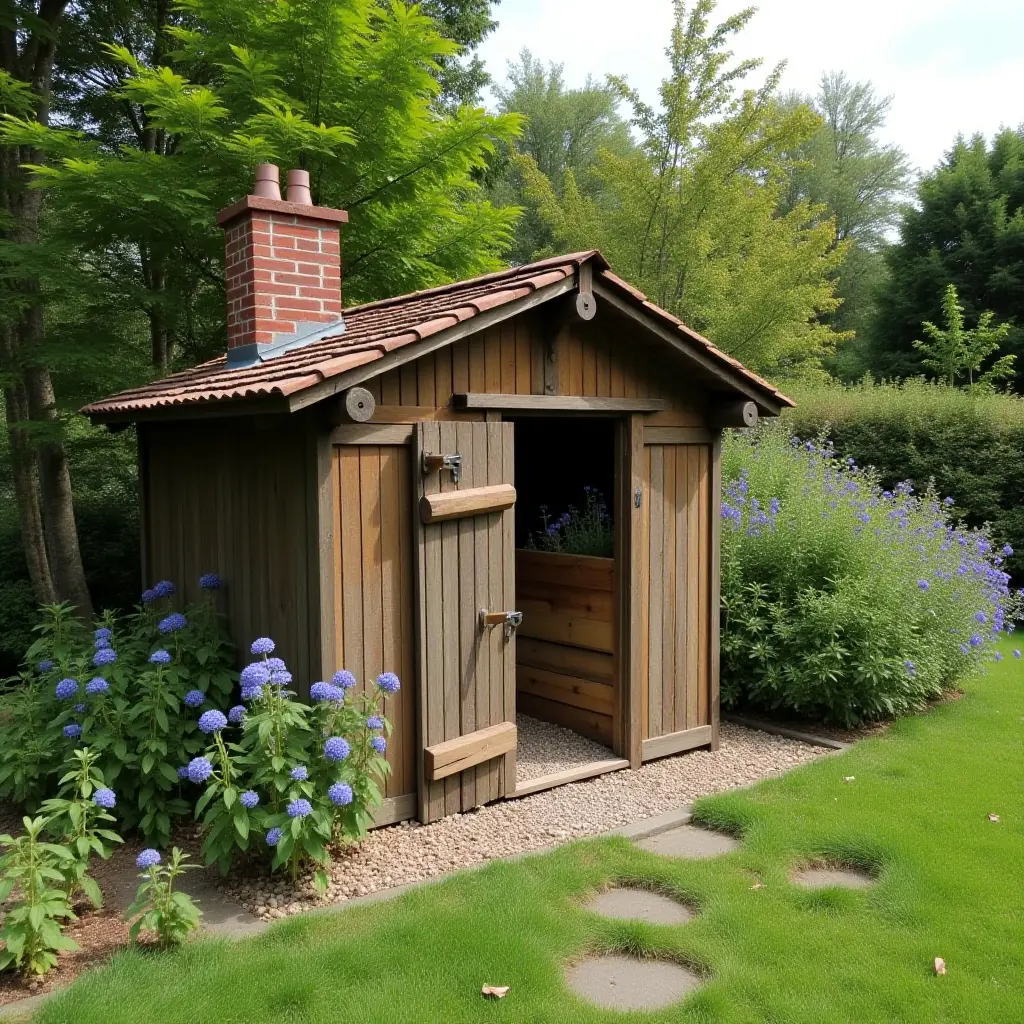
Materials Needed for Your DIY Compost System
Setting up your own compost system is a delightful step towards sustainable living. Here’s a list of materials you’ll need:
- Compost Bin: You can buy one or make your own from wood pallets or wire mesh. A bin helps keep everything tidy and contained.
- Kitchen Scraps: Collect vegetable peels, fruit scraps, coffee grounds, and eggshells. Avoid meat and dairy to keep your compost healthy.
- Garden Waste: Include grass clippings, leaves, and small branches. These add vital carbon to your compost.
- Water: Moisture is key. Your compost should feel like a damp sponge.
- Pitchfork or Shovel: These tools help you turn the compost, ensuring it breaks down evenly.
- Thermometer: Optional, but useful for checking if your compost is heating up properly.
With these materials, you’re all set to create your own cottagecore composting system. Remember, patience is part of the process. Happy composting!
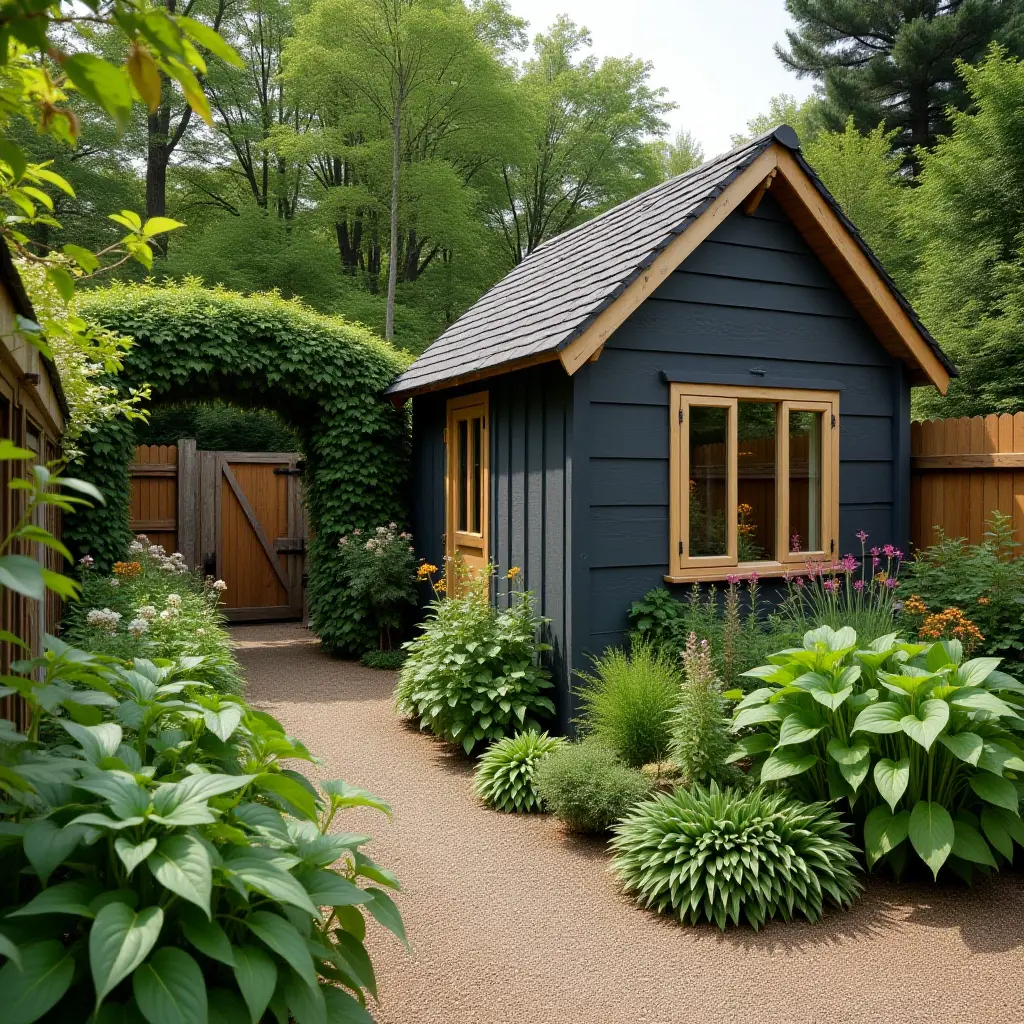
Step-by-Step Guide to Building Your Compost System
Building your own compost system is a rewarding experience that brings the magic of nature into your cottagecore garden. Follow these simple steps to get started:
1. Choose Your Compost Bin
Select a compost bin that suits your garden’s aesthetic. You can purchase a ready-made bin or create your own using wooden pallets or wire mesh for a rustic touch.
2. Find the Perfect Spot
Place your compost bin in a shaded, level area of your garden. This helps maintain moisture and ensures stability. Keep it accessible for easy maintenance.
3. Prepare the Base
Start by laying down twigs or straw at the bottom of your bin. This layer aids drainage and aeration, which are vital for a healthy compost pile.
4. Layer Your Materials
- Green Materials: Add kitchen scraps like vegetable peels and fruit cores. These provide nitrogen.
- Brown Materials: Include dried leaves, small branches, and cardboard. These add carbon.
5. Moisten and Turn
Keep your compost like a damp sponge by adding water as needed. Use a pitchfork or shovel to turn the pile every few weeks to ensure even decomposition.
6. Monitor and Maintain
Check the temperature if you have a thermometer. A well-maintained compost should heat up to around 140°F (60°C), indicating active decomposition.
Remember, patience is key in cottagecore composting. In a few months, you’ll have rich, crumbly compost ready to nourish your garden. For more inspiration, explore our cottagecore garden tools article.
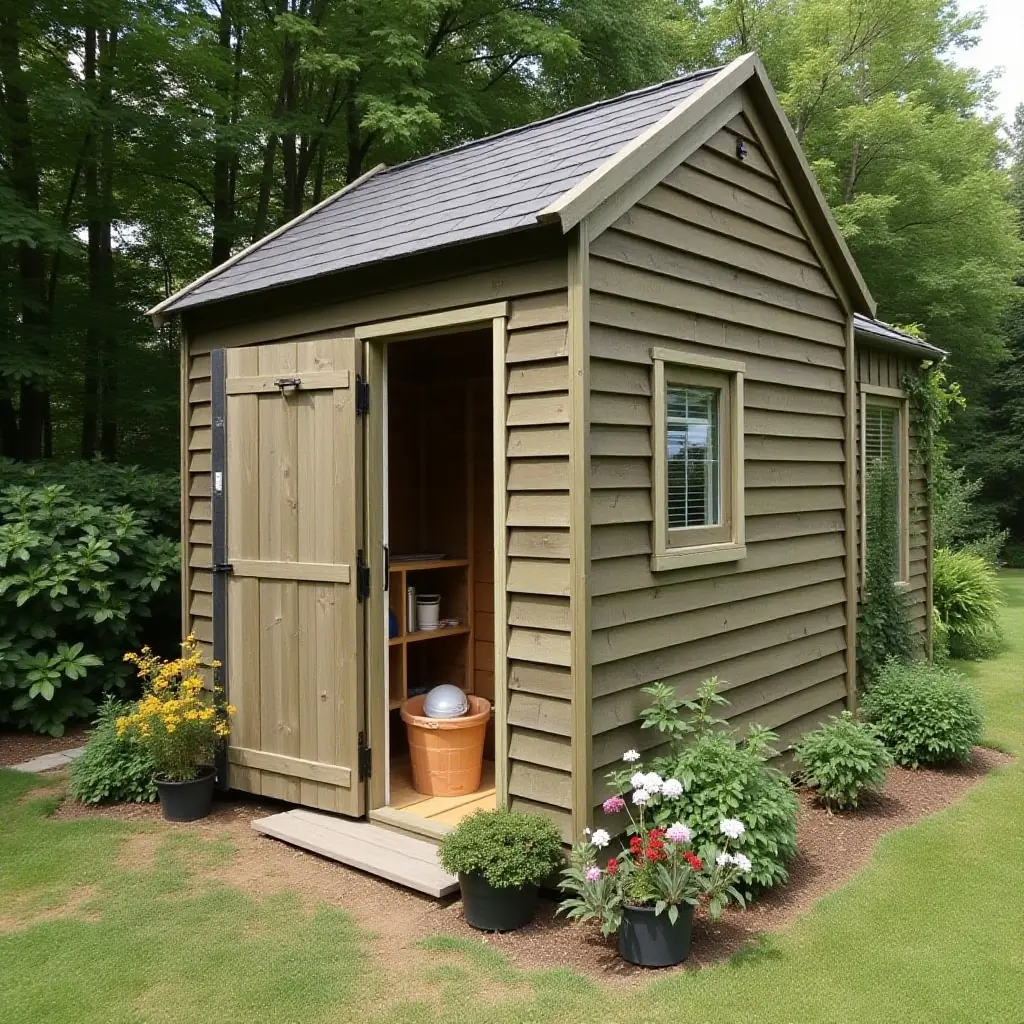
What Can and Cannot Be Composted
Knowing what to compost is key in cottagecore composting. Here’s a handy guide:
Compostable Items:
- Vegetable and Fruit Scraps: Peels, cores, and bits.
- Eggshells: Crushed for added calcium.
- Grass Clippings and Leaves: Great for adding carbon.
- Tea Bags and Coffee Grounds: Boosts nitrogen.
Non-Compostable Items:
- Meat and Dairy: Attracts pests and smells bad.
- Oily Foods: Hard to break down.
- Plastic and Metal: Not biodegradable.
- Diseased Plants: Can spread diseases.
For more tips on sustainable living, check out our cottagecore recycling tips article.
Maintaining Your Compost Pile
Maintaining your compost pile is like caring for a living thing. Keep it moist, like a damp sponge, to help the microbes work their magic. Turn the pile every few weeks with a pitchfork to mix the materials and let air in. This helps the compost break down faster.
Watch the temperature—if it’s steaming, that’s a good sign! A balanced mix of green and brown materials ensures a healthy compost. If it smells bad, add more brown materials like leaves or cardboard. For more gardening tips, explore our cottagecore vegetable garden article.
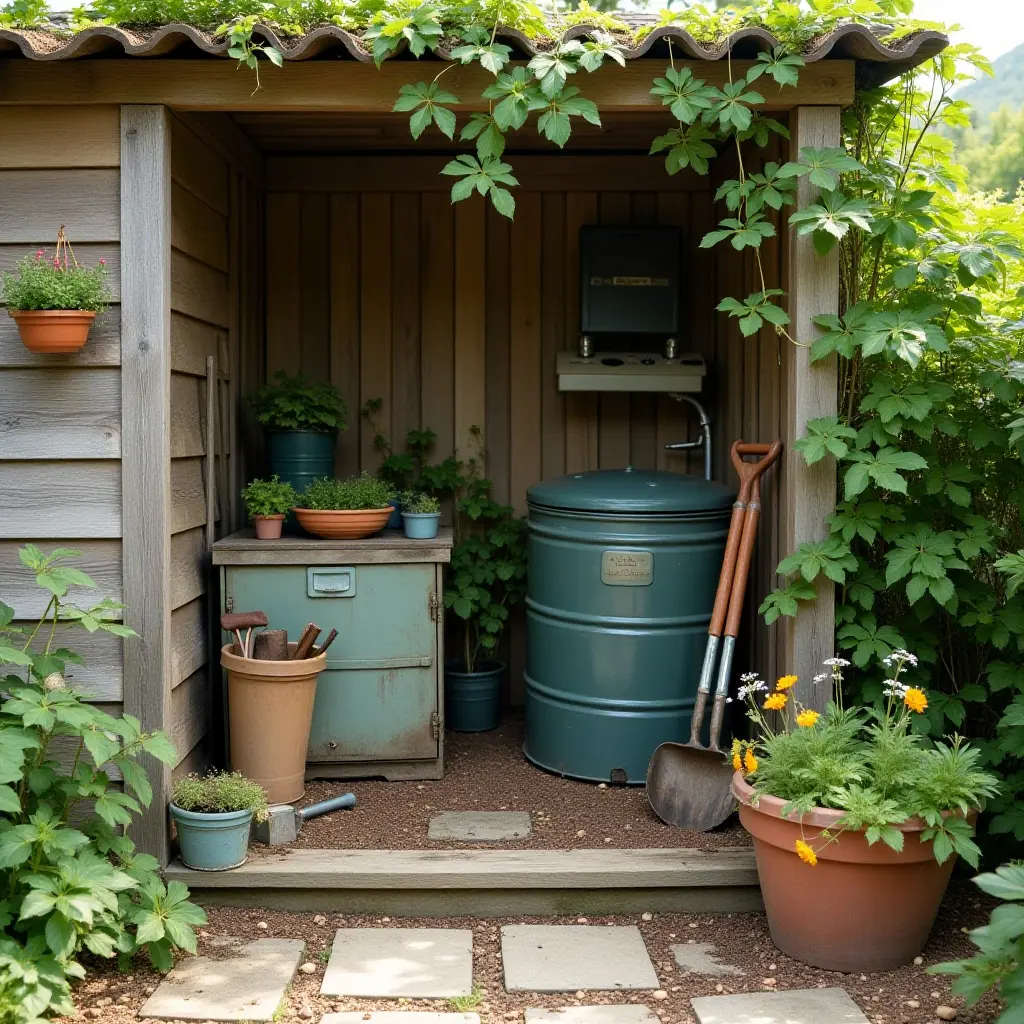
Using Your Compost to Enrich the Soil
Once your compost has transformed into a dark, crumbly material, it’s ready to give back to your garden. Sprinkle it around your plants or mix it into the topsoil to boost its nutrients. This process helps your plants grow stronger and healthier.
Compost acts like a sponge, holding water in the soil, which is perfect for those dry summer days. It also encourages earthworms to visit, which naturally aerates the soil. Remember, a little compost goes a long way, so use it sparingly!
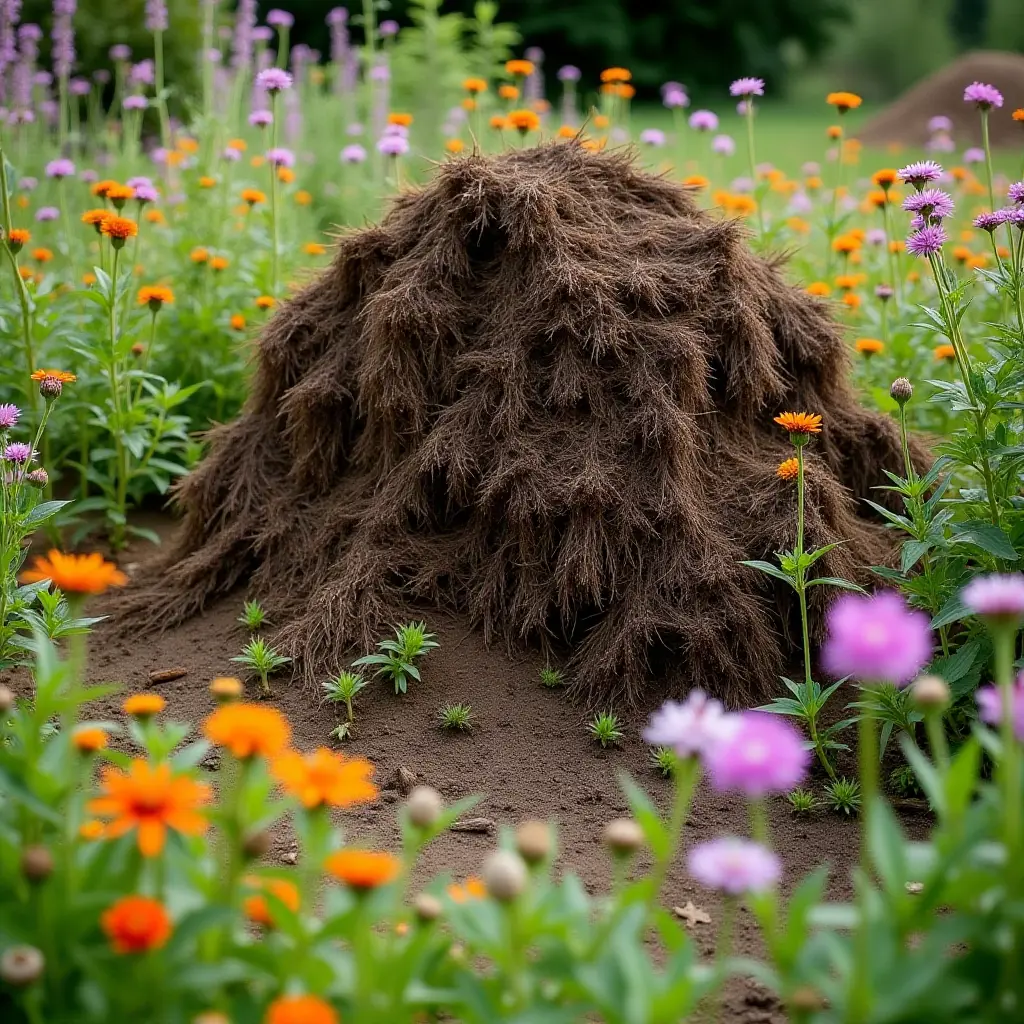
Conclusion and Encouragement to Start Composting
Starting your own composting system is a wonderful journey into sustainable living. Embrace this simple act of cottagecore composting to enrich your garden and reduce waste. Remember, every small effort counts. Enjoy the process and watch your garden flourish. For more inspiration, explore our sustainable cottagecore living guide.
FAQ
- What is cottagecore composting? Cottagecore composting is the practice of turning kitchen scraps and garden waste into nutrient-rich soil, aligning with the values of simplicity and sustainability.
- What are the benefits of composting? Benefits include waste reduction, improved soil health, biodiversity support, and cost savings by reducing the need for chemical fertilizers.
- What materials should I avoid in composting? Avoid composting meat, dairy, oily foods, plastic, metal, and diseased plants.
- How do I maintain my compost pile? Keep it moist, turn it regularly, and monitor temperature to ensure proper decomposition.
